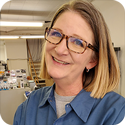Newsletter Archives
-
Born to fail?

ISSUE 21.08 • 2024-02-19 BEN’S WORKSHOP

By Ben Myers
A beguiling and captivating laptop showed up here with a bad combination of RAM and SSD.
One of my clients recently traded in a Dell Inspiron 15-7568, a laptop with a brilliant 15-inch, 4K (3840×2160) resolution touch screen; eight gigabytes of memory; and a 256GB solid-state drive (SSD).
Nice, but troubled.
Read the full story in our Plus Newsletter (21.08.0, 2024-02-19).
This story also appears in our public Newsletter. -
Creative uses for external drives
HARDWARE

By Peter Deegan
Despite the availability of cloud storage over fast Internet connections and the ever-increasing size of storage built into all devices, external storage devices have many uses.
And even though the very term “external drive” conjures up images of desktop “bricks” containing rotating hard drives, external storage can consist of any storage device that can be connected to a desktop, laptop, or phone and appears to that computer as a disk drive. As we’ll see, external drives can connect in many ways, serve many purposes, and be as tiny as a thumbnail.
Read the full story in our Plus Newsletter (20.28.0, 2023-07-10).
-
Desktop computers: Re-use!
HARDWARE

By Ben Myers
Make sure the most critical hardware works right before you go ahead.
Previously, I described the most basic steps to get a computer dirt-free and bootable, with a working power supply. These tasks established a baseline for additional work to assure that the computer is in very good operating condition for whoever is going to use it.
Read the full story in our Plus Newsletter (19.28.0, 2022-07-11).
-
The hard drive is dead; long live solid-state storage
SILICON

By Brian Livingston
The death of hard disk drives may be greatly exaggerated — after all, HDD manufacturers sold more than 250 million units worldwide in 2021 — but solid-state drives, which store data in semiconductors with no moving parts, finally overtook the unit sales of HDDs last year. The writing is on the wall for ye olde spinning platters.
SSDs have many advantages over HDDs, including being much smaller in size and offering faster throughput. But even after years of cost improvements, SSDs are still a much more expensive choice.
Read the full story in our Plus Newsletter (19.26.0, 2022-06-27).
-
BitLocker and the dead: The story of a successful transplant
HARDWARE

By Ben Myers
The CPU is the heart of a laptop, but we do the brain transplants here. BWA! HA! HA! HA!
Recently, a long-time client who had moved several towns away called me in a panic. A two-year-old Lenovo Yoga laptop had failed.
When I got my hands on the computer, I surmised that the probable cause was the third-party charger, which had blown out a circuit inside the laptop when the charger itself had failed. The charger did not function when plugged into another laptop, confirming my suspicions.
Read the full story in our Plus Newsletter (19.12.0, 2022-03-21).
-
Freeware Spotlight – CrystalDiskInfo
BEST UTILITIES

By Deanna McElveen
YOUR HARD DRIVE IS GOING TO DIE!
German-born theologian Georg Hermes once said, “Death is like an arrow that is already in flight, and your life lasts only until it reaches you.” This also applies to the hard drives in our computers. But sometimes we get some subtle hints that the end is near … well, at least for our hard drives.
Read the full story in the AskWoody Plus Newsletter 18.44.0 (2021-11-15).
-
Terabyte update 2021

ISSUE 18.22 • 2021-06-14 HARDWARE

By Will Fastie
The price of storage is in flux for a variety of reasons, making predictions extremely difficult.
In my previous article on this subject about a year ago (AskWoody 17.21.0), I wrote an expanded version of an article I have been writing on my personal site for a number of years. The article attempted to illustrate the difference in price between hard disk drives (HDD, rotating magnetic discs) and solid-state drives (SSD, flash memory). The goal was to establish that HDD had a significant price advantage over SSD; over the period of time covered, SSDs were small, very expensive, and primarily used as small boot drives in PCs needing high performance.
Read the full story in the AskWoody Plus Newsletter 18.22.0 (2021-06-14).
This story also appears in the AskWoody Free Newsletter 18.22.F (2021-06-14). -
If you use Win10 BitLocker on a solid state drive, you need to follow MS’s advice and re-activate it
There’s a bug in most self-encrypting SSDs that leaves the data on the drives wide open. It’s complicated, but in theory anyone who can get at the hardware-encrypted SSD can retrieve all the data on it.
One of the advantages of BitLocker is that it encrypts hard drives so they can’t be cracked, even if a miscreant gets physical access to it.
By default, BitLocker running on Windows 10, set to encrypt a self-encrypting SSD, will flip over to the SSD’s built-in capabilities. Which, as we found out on Monday, is not secure.
The solution? Run BitLocker to turn off the hardware protection, then run it again to turn on software protection.
Computerworld Woody on Windows.
Thx @gborn.


